Exclusive: Canyon Ultimate CF Evo 10.0 SL - Review
Is Canyon’s new 4.96kg halo model a truly great bike or merely a headline grabber?
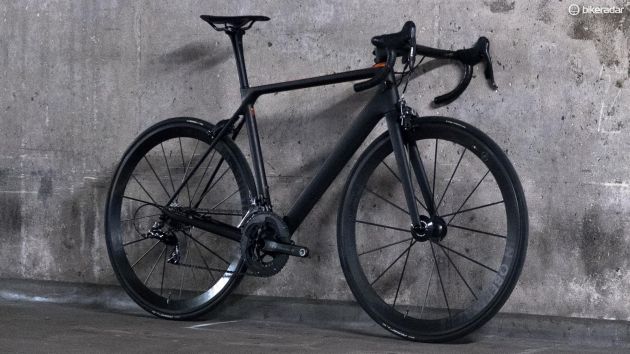
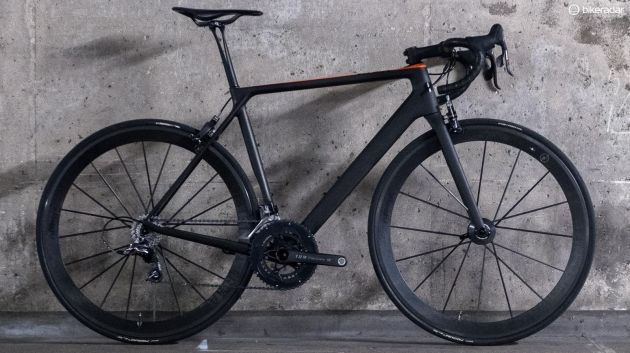
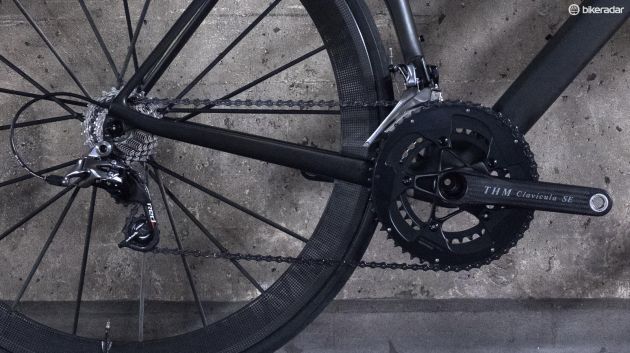
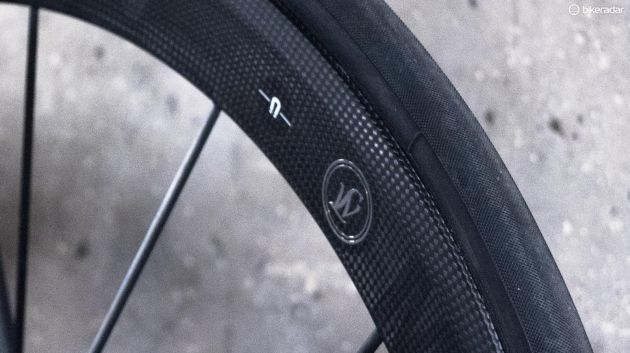
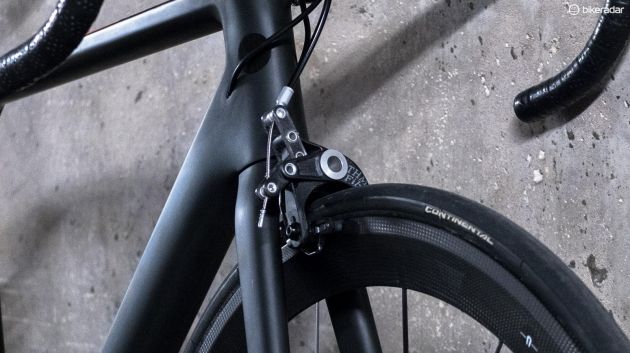
This article originally appeared on BikeRadar
BikeRadar verdict:
"Staggeringly light bike for the mountains and for everywhere else too."
- Highs: Stiffness, handling, comfort, lightness and even value
- Lows: Wheels and tyres sap confidence in testing conditions and aren’t for everyday
- Buy if: You want the lightest bike for the mountains without compromising
The fight to be light is unending in cycling and Canyon's latest featherweight ace is the 665g Ultimate CF Evo 10.0. I got a world exclusive on the first Evo 10.0 to leave the factory and took it out for two rides.
The Ultimate CF Evo 10.0 SL is claimed to weigh 4.96kg, with a frame weight of 665g and a 270g fork, but measured on our scales the bike came in at 5.1kg with no pedals or cages.
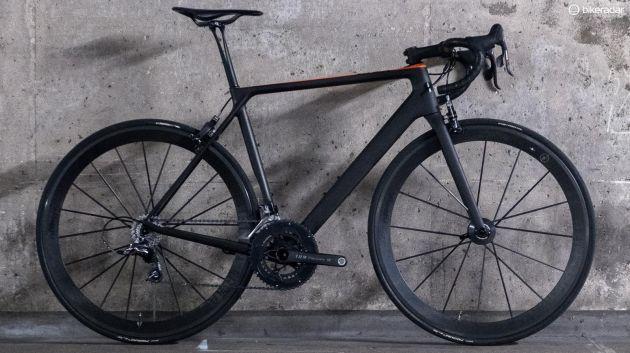
On our scales the Ultimate CF Evo 10.0 SL weighed 5.1kg with no pedals or cages
This isn’t entirely uncharted territory. Cervélo’s R5Ca had similar figures back in 2010 and has evolved further since, while Trek, Merida and Fuji have all gone sub-700g, too. And those are just the big brands; low-volume specialists like AX Lightness go even lighter.
Get The Leadout Newsletter
The latest race content, interviews, features, reviews and expert buying guides, direct to your inbox!
Canyon claims its bike differs because it refused to compromise stiffness and responsiveness to hit this weight. “It wasn’t built to be the absolute lightest, it was built to still ride like an Ultimate,” Canyon’s marketing manager Nick Allen said.
Part of achieving this involved a special ultra-high modulus, pitch-based carbon fibre, and access to it, Canyon claims, required special permission from the Japanese Ministry of Defence. Canyon mentions this frequently. We can forgive them, though, it does sound cool.
Canyon Ultimate CF Evo 10.0 range and spec
- Builds: Canyon Ultimate CF Evo 10.0 SL / Ultimate CF Evo 10.0 LTD
- Groupsets: SRAM Red 22 / SRAM Red eTap
- Brakes: THM Fibula calipers / SRAM Red
- Wheels: Lightweight Meilenstein Obermayer tubulars, CeramicSpeed bearings / Lightweight Meilenstein clinchers, CeramicSpeed bearings
- Tyres: Continental Podium TT tubs / Continental Grand Prix TT
- Cranksets: THM Clavicula SE / THM Clavicula M³ SRM
- Power meters: N/A / SRM
- Saddles: Fizik Antares 00 / Fizik Antares 00
Canyon Ultimate CF Evo 10.0 SL ride impressions
As world exclusive first rides go, this was one of the less glamorous: my commute home from the office in central Bristol in England, rather than, say, the hills of Tuscany or the Côte d’Azur.
But what my 24-mile route lacks in prestige it makes up for in function, with one proper climb and various other drags and punchy ramps, along with every variation of road quality.
Plus, nothing highlights a bike’s relative performance better than the roads you ride a few hundred times per year and I had a much longer and tougher ride planned for a few days later.
On a late evening ride home, the Ultimate Evo bombarded me with sensations. Its lightness is ever present, tangible even when coasting stood on the pedals. It’s also expletive-inducing when you stamp on the pedals and feel the bike snap forwards.
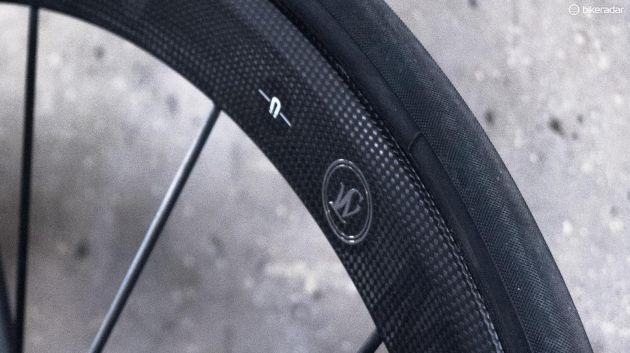
Lightweight Meilenstein Obermayer tubulars
It makes every hill slightly easier, even the gentle drags, as if it’s tilting the road in your favour and knocking a percent off every gradient.
The Evo steers like an Ultimate, which is to say precisely and sharply, though the farther reaches of its agility were made harder to exploit by the skinny, hard, TT tubulars. Also, 22mm tubs at necessarily high pressures don't exactly flatter a bike's ride.
There is still a fair level of compliance in the frame, though, and an incredible amount in the clever split VCLS 2.0 seatpost.
Having tested a high-spec Ultimate CF SLX not long ago, I’d say no comfort has been lost with the gram-chasing and that on the same wheels and tyres the SLX and Evo would be on par riding over bad roads.
This makes it only more impressive that the stiffness under power is also exceptionally high.
Like the CF SLX, the CF Evo feels extremely efficient. Super-light frames tend to fall into two groups: those that have achieved the weight by using higher grade materials, which preserve or even increase stiffness, and those which save grams by removing material and compromising the ride to perhaps hit a great stiffness-to-weight ratio, but with lower absolute stiffness — sometimes much lower.
The second group is fine for sitting in the saddle and spinning up a mountain, but there’s so much more to cycling than that. Happily, the CF Evo is one of the first group. It’s a bike you could take to any race and any event.
The Lightweight Meilenstein Obermayer wheels are both the spec highlight and a dominant factor in the ride.
At a claimed 935g — for the pair! — they’re astonishingly light and at £4,500 in this extra-special Obermayer spec they’re also astonishingly expensive. While £8,999 is a huge amount of money for a bicycle, you’d have to say Canyon makes the CF Evo 10.0 SL appear to be as good value as every other one of its bikes.
These wheels are made differently to most and they feel it, with idiosyncrasies all of their own.
The carbon fibre spokes are tied at the crosses for extra stiffness, which really works to boost response and eliminate brake rub, yet the unloaded spokes move and make a noise when you’re out of the saddle.
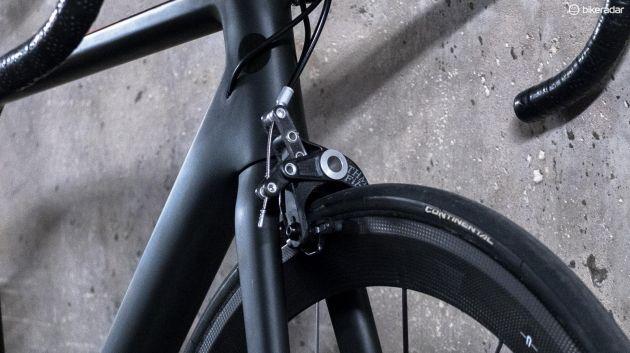
THM Fibula caliper brakes
Dry braking is good, but wet braking is not and their shape is radically different from the blunt profile hegemony established by ENVE and Zipp. When the wind is low, they're still fast and their thin profile slices through the air, but they can be twitchy when the wind gets up.
The SRAM Red drivetrain is familiar, but a less common sight on original equipment spec recently. Personally, I love its crisp, snappy shifting, though it’s always possible to miss-shift going up the block.
To do away with that altogether go for the outstanding eTap version. The THM crankset looks spectacular, weighs little and is forgotten when riding because it’s also hugely stiff. The component most at risk of compromising performance for low weight is the brakeset, but the THM Fibulas deliver superb power and control.
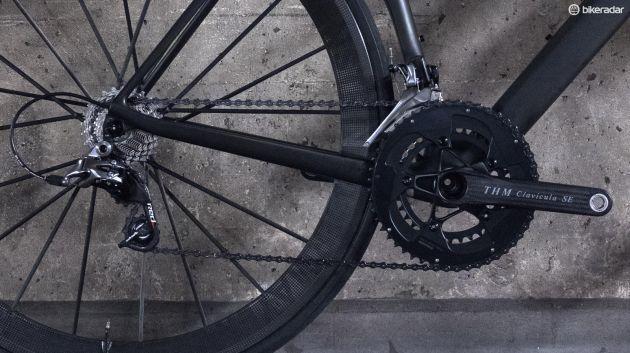
SRAM Red 22 and THM Clavicula SE
To really put the Canyon through its paces I took it for a 71-mile ride and took in as many hills as possible around Bath. A few interesting things came to light. First, and unsurprisingly, the steeper the hill the brighter the Evo shines.
Second, its speed uphill means that your overall average speed isn’t eroded by each ascent as much as you’re used to and this applies to everyone regardless of fitness; it simply makes hilly rides faster to a greater extent than makes sense, given its weight alone only saves around 10 seconds on a seven-minute climb.
The 50/34 11-25 gearing is also well judged, providing low ratios for tough climbs while keeping them closely spaced to avoid big gaps.
It’s pretty fast on the flat but it doesn’t feel it. The CF Evo is so light and the wheels have so little inertia that you can feel every gust of wind.
Canyon Ultimate CF Evo vs. the competition
A number of brands have sub-5kg bikes and I’ve ridden most of them. The Cervélo R5Ca was the original in the 700g bracket and was hugely impressive back in 2010.
It has been improved and lightened since as the Cervélo RCA, which is now claimed at 670g — a number you might guess that Canyon was keen to undercut — but retails at £7,599 for the frameset.
The 4.95kg Fuji SL 1.1 burned brightly but briefly in 2015–16. It was very similar to the Canyon with SRAM Red and ultralight all-carbon wheels, but with Reynolds RZRs. The ride was also very similar, which is to say fabulous, and it was ‘only’ £8,500, but it sadly no longer exists in that guise.
Much less missed is the Merida Scultura 9000. I rode the 6.2kg version and not the 4.5kg 9000 Ltd, but they share the same 680g frame — apparently made from overcooked spaghetti.
Imprecise and wobbly under power, it had clearly sacrificed stiffness to reach the weight target and Merida later admitted as much, also confessing that its team rode the heavier but stiffer version below it in the range. It was a reminder of why weight loss must never come at the cost of frame integrity.
Perhaps the toughest current rival to the Ultimate Evo is the Trek Émonda SLR 10, but that has also changed. While it was launched as an £11k, 4.65kg halo model, the spec has matured into something a little more usable and it’s now a claimed 5.38kg and £9,700.
I tested a 6.2kg SLR 9, which uses the same stiff, eager and accurate frame, but no longer has the weight weenie bragging rights of the Canyon.
Bottom line: The build makes — and somewhat breaks — the overall package
So, is it the perfect road bike? No. The wheels and tyres compromise it too much for that. But it is spectacularly good and it would be close to perfect in the right context, such as the HotChillee Alpine Challenge or Haute Route.
It sounds harsh, but not unfair, to say that most of what makes this bike immediately special is the build.
You could throw these components at many frames, not least the Ultimate CF SLX, and build an incredibly light bike with almost the same characteristics.
The Evo is that little bit lighter and its frame performance hasn’t been compromised to get there. The lucky few who get to own one will love it. The rest of us can look forward to what the next generation Ultimate CF SLX might offer.
Canyon Ultimate CF Evo 10.0 pricing and availability
- Ultimate CF Evo 10.0 LTD: £11,599 / €13,000 / $N/A / AU$18,599
- Canyon Ultimate CF Evo 10.0 SL: £8,999 / €10,000 / $N/A / AU$14,299
- Frameset with one-piece Aerocockpit, VCLS 2.0 seatpost: £2,949 / €3,299 / $N/A / AU$4,799